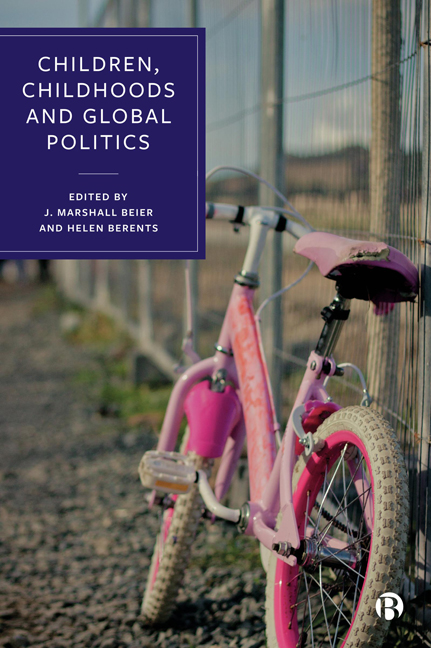7 - The Office of the Special Representative of the Secretary-General for Children and Armed Conflict: A Normative Agenda and Children’s Agency in Armed Conflict
Published online by Cambridge University Press: 03 April 2024
Summary
Introduction
Children are ever-present in arenas of armed conflict. In contemporary consciousness, pictures of suffering children are almost synonymous with ‘new wars’. When we interrogate our mental image-bank, we struggle to identify the child in these pictures as one with agency, the capacity to enter freely into conflict without coercion or compulsion. Plenty has been said about the political utility of constructing the conflict-affected child in this way, which will be elaborated on below; states, regional actors, NGOs, and international organizations (IOs) of varying mandates make use of this norm of children lacking agency. This chapter examines the presence of this norm in annual reports of the Special Representative of the Secretary-General for Children and Armed Conflict (OSRSG-CaAC), based on a wider textual analysis project conducted by the author. Mark Laffey and Jutta Weldes’ (1997) concept of symbolic technologies is introduced through a discussion of the non-agentic child soldier as a norm, and then utilized to explain the way norms are afforded common phrases in these reports, which allows the reader to analyse their frequency and spread as well as gain insight into how the presence of this norm may be impacting the perception of child protection at a high policy level in the United Nations.
The non-agentic child in conflict: contemporary discussion
Scholars in anthropology, critical security studies, International Relations (IR) and broader studies of childhood have all discussed the normative assumption that conflict-affected children lack agency. For example, David M. Rosen (2005) has written on the agency of children during the Warsaw Uprising in World War II and examined how this is ignored by contemporary narratives of the event. Such discussions of conflict-affected children’s agency typically engage across two central points. The first is the question of who, exactly, is a child – when ‘adulthood’ is or should be reached, and what the relative difference in autonomy is between adult and child. The second is the representation of childhood itself as a condition in which agency is assumed to be inherently absent because adulthood and agency are considered synonymous. Both points of this discussion are engaged with in post-colonial arguments relevant to the analysis in this chapter.
- Type
- Chapter
- Information
- Children, Childhoods, and Global Politics , pp. 101 - 113Publisher: Bristol University PressPrint publication year: 2023



